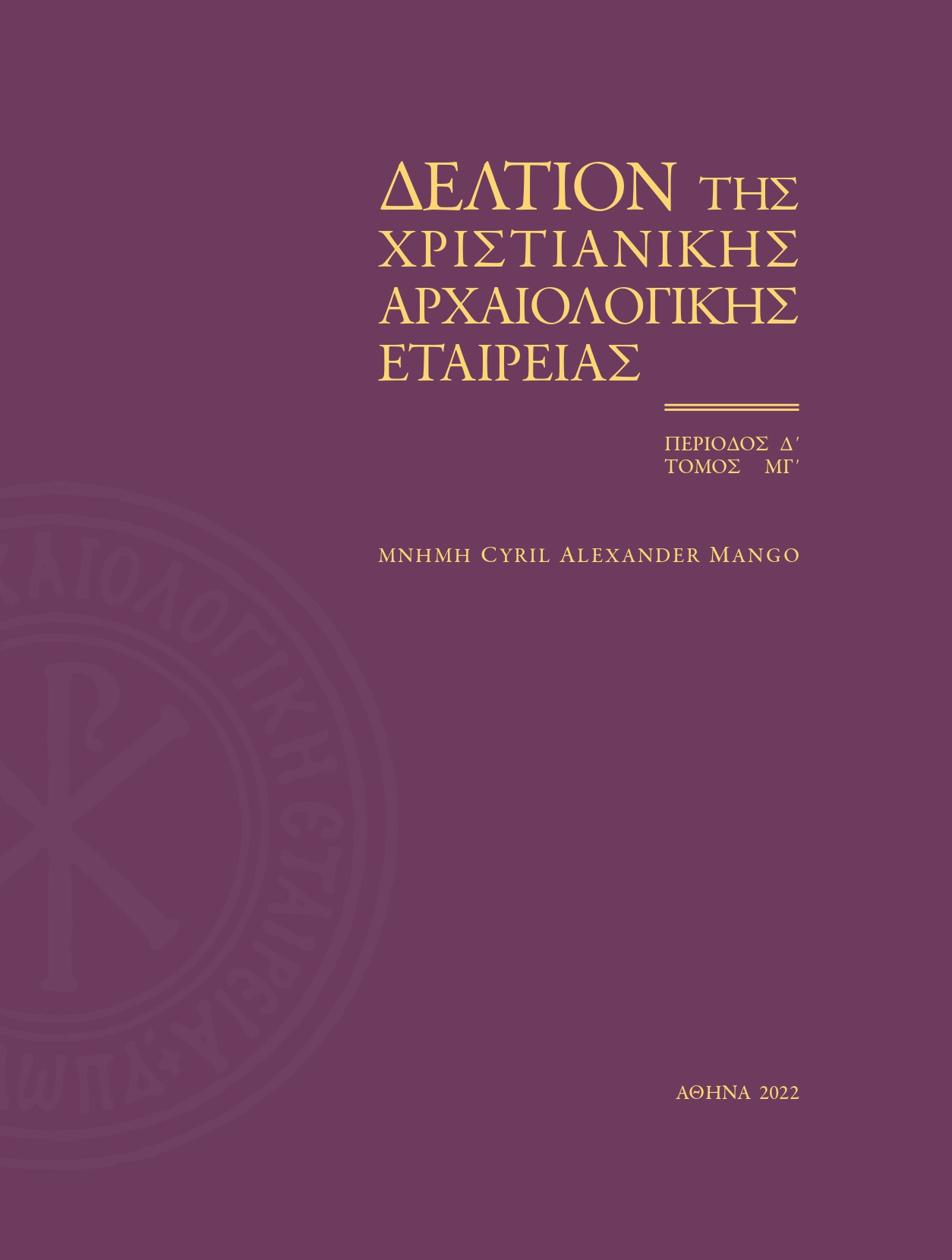Holy Wisdom and Holy Apostles of Constantinople: From imperial sanctuaries to symbols of conquest. The symbolical use of memory by the Byzantine and Ottoman Empires

Abstract
The churches of the Holy Wisdom and of the Holy Apostles, founded by the Constantinian dynasty in the context of a creative synthesis of Imperial Greco-Roman and Judeo-Christian traditions, left a deep imprint on the history and urban organization of Constantinople as the City’s most important imperial sanctuaries. After the Fall of 1453, the conversion of Hagia Sophia and the replacement of the Holy Apostles and the imperial mausoleums by the Conqueror’s Mosque transformed them into diachronic symbols of the Ottoman conquest and of the triumph of Islam.
Article Details
- How to Cite
-
ΧΑΤΖΗΛΑΖΑΡΟΥ (Dimitrios Th. CHATZILAZAROU) Δ. Θ. (2023). Holy Wisdom and Holy Apostles of Constantinople: From imperial sanctuaries to symbols of conquest. The symbolical use of memory by the Byzantine and Ottoman Empires. Deltion of the Christian Archaeological Society, 43, 401–414. https://doi.org/10.12681/dchae.34404
- Section
- Articles
The copyright for articles in the journal Deltion of the Christian Archaeological Society (henceforth Deltion) is retained by the author(s), with first publication rights granted to the journal and to EIE/ EKT the right to store and communicate these articles to the public via its information infrastructures. By virtue of their appearance in this journal, articles are free to use with proper attribution for non-commercial uses under a ShareAlike obligation. The Christian Archaeological Society and EIE/EKT retain the worldwide right to reproduce, display, distribute, and use articles published in the Deltion in all formats and media, either separately or as part of collective works for the full term of copyright. This includes but is not limited to the right to publish articles in an issue of the Journal, copy and distribute individual reprints of the articles, authorize reproduction of articles in their entirety in another publication of the Christian Archaeological Society, and authorize reproduction and distribution of articles or abstracts thereof by means of computerized retrieval systems.


